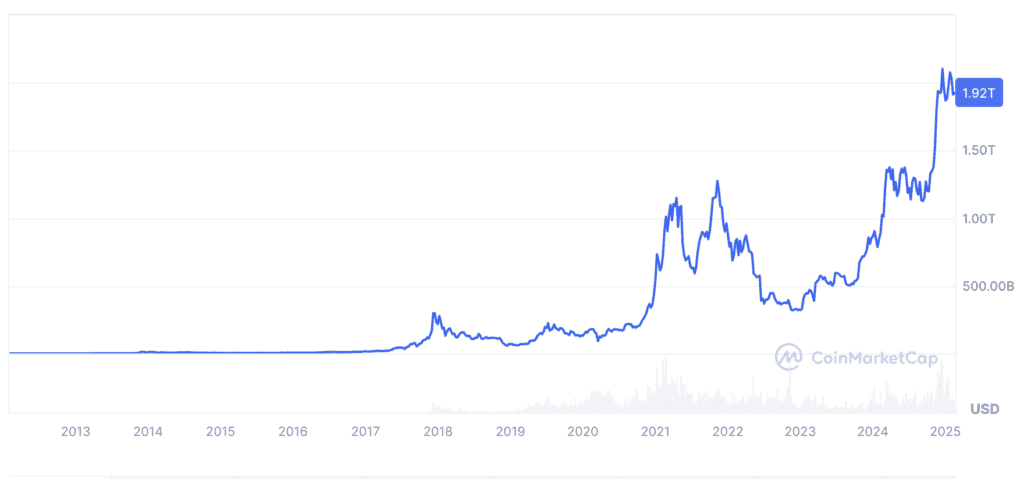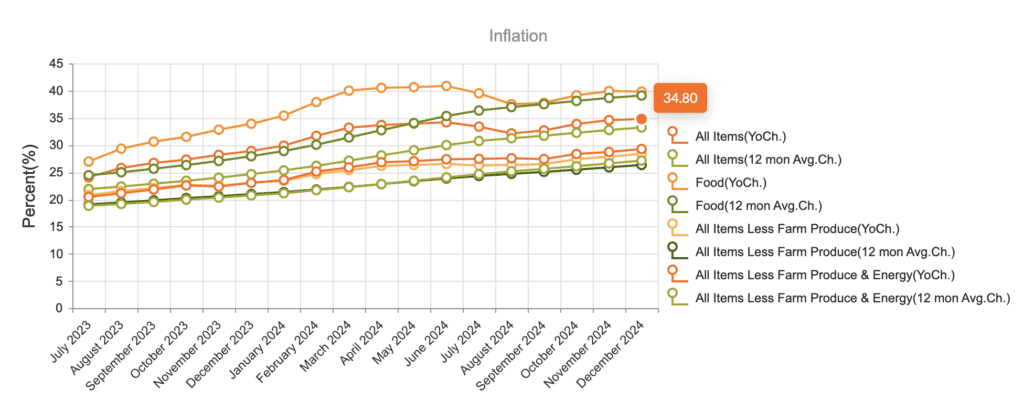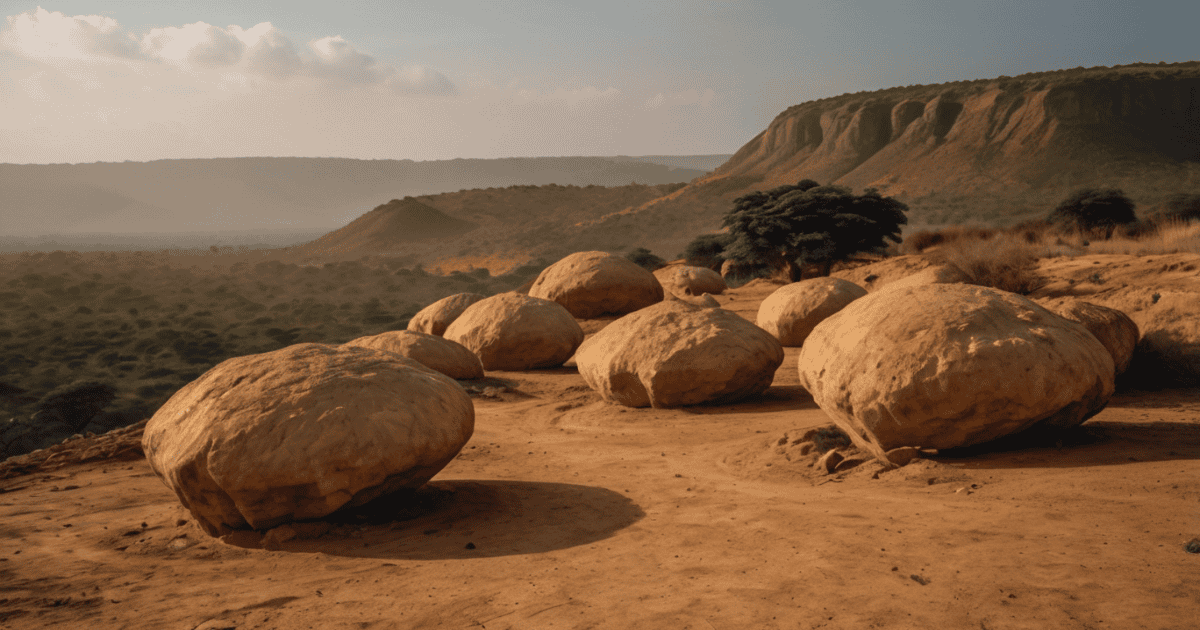Question of the governor of South Africa Reserve Bank (Sarb), “Why not the strategic beef reserve?” In the World Economic Forum of 2025 in Davos it may have been rhetorical, but the apparently sarcastic observation of Lesetja Kganyago on the “strategic reserves of Bitcoin” inadvertently underestimated the need for Africa to rethink its economic strategies in the face of global financial changes. In a world increasingly defined by digital transformation, the concept of money and value storage is evolving quickly. Africa is not extraneous to economies based on raw materials. From oil to gold, to cocoa beef, the continent was based for a long time on natural resources for economic sustenance. However, these raw materials are full of challenges. The prices of global raw materials are highly sensitive to market fluctuations, geopolitical tensions and climate change. For example, the price of beef can oscillate dramatically due to the outbreaks of diseases or commercial restrictions, precisely in the way the value of Fiat currencies oscillates and remains unpredictable when it is exchanged against digital activities such as Bitcoin due to regional financial policies and currency devalues. According to the Food and agricultural organization (FAO), The prices of beef have experienced volatility up to 30% on an annual basis due to factors such as foot diseases and mouth and export bans.

Source of the image: FAO
Although Brian Armstrong, Coo di Coinbase, replied to Kganyago’s question with a convincing topic: Bitcoin is not just a better form of money than gold, it is also more portable, divisible and guided by users. Over the past ten years, Bitcoin has oversees all the main classes of activities, consolidating its position of higher value shop. For Africa, a continent often marginalized in the global financial system, a strategic bitcoin reserve could be the key to unlocking economic independence, promoting innovation and guaranteeing long -term prosperity. As?
It is time to be factual and realistic in our comparison. Bitcoin exists digitally and does not require physical storage, goods such as beef and mutton are perishable and expensive to maintain. The World Bank estimates that post-branch losses for agricultural products in Africa amount to $ 48 billion per year, highlighting the inefficiencies of reserves based on raw materials. While raw materials have an intrinsic value, their usefulness is limited to specific sectors. Bitcoin, on the other hand, is a global and boundless resource with applications in finance, technology and beyond, while its unique properties make it an ideal candidate for a strategic reserve resource. With a limited supply of 21 million coins, Bitcoin is intrinsically deflationary, unlike Fiat currencies that can be printed indefinitely or beef with infinite reproductive mechanisms. According to Coinmarketcap, Bitcoin’s capitalization of the market went from less than 1 billion to over 1 trillion of trillion in 2025, demonstrating its rapid adoption and appreciation of value.

Source of the image: COINMARKETCAP
Why Bitcoin on beef?
Bitcoin can be transferred through the edges in a few minutes and divided into smaller units (Satoshis), making it more practical than gold or meat. Over the past ten years, Bitcoin has delivered an average annual return of over 200%, exceeding gold, shares and properties. A study by Fidelity Investments has discovered that the yields appropriate to the risk of Bitcoin are superior to traditional activities, making it an interesting option for the conservation of long -term wealth. Globally, nations are starting to recognize Bitcoin potential as a reserve resource. El Salvador made history in 2021 by adopting Bitcoin as a legal tender, while countries such as Switzerland and Singapore integrated Bitcoin in their financial systems. This is 2025 and the “Strategic Bitcoin Reserve” invoice of the United States is already on site. According to a chain 2023 report, Africa is one of the faster growth markets, with Nigeria, Kenya and South Africa by adoption.
Bitcoin deflationary nature makes it an effective coverage against inflation, which has afflicted many African economies. For example, the inflation rate of Nigeria touched 34.80% in 2024, eroding the value of the Naira. A bitcoin reserve could protect national wealth from this devaluation. By allocating only 1% of its Bitcoin reserves, Africa could unlock billions of value. For example, if the combined foreign reserves of the continent of 500 billion included 5 billion Bitcoin, a 10x appreciation in the Bitcoin value would produce $ 50 billion in return. Unlike the production of beef, which contributes to deforestation and greenhouse gas emissions, Bitcoin mining can be fed by renewable energy. According to the Cambridge Bitcoin electricity consumption index, 58.5% of global Bitcoin mining is powered by renewable energy starting from 2021. The vast solar and hydroelectric potential of Africa makes it an ideal position for sustainable bitcoin mining operations. The storage and management of Bitcoin reserves is much more convenient than the maintenance of raw materials. There are no storage costs, no risk of deterioration and complex logistics are necessary.

Source of the image: Central Bank of Nigeria.
The adoption by Bitcoin by El Salvador as a legal tender provides valuable information for Africa. Despite initial skepticism, Bitcoin has increased tourism and foreign investments in El Salvador. According to El Salvador’s Central Reserve Bank, tourism revenues increased by 30% in the first year after Bitcoin’s adoption. Over 70% of the Salvadoregni previously had no access to banking services. Bitcoin has allowed millions of people to participate in the global economy. By reducing the addiction to the US dollar, El Salvador took a courageous step towards financial independence. Many African nations are highly remedied to the US dollar for trade and reserves, leaving them vulnerable to external economic policies. Bitcoin offers a decentralized alternative, reducing dependence on traditional financial systems.
By establishing a strategic bitcoin reserve, Africa can guarantee its economic future, protect its wealth from inflation and position itself as a global leader in the digital economy. The time has come for Africa to go beyond the obsolete economic models and embrace the future of money. As Brian Armstrong appropriately said, Bitcoin is not just a better form of money; It is the foundation of a new financial paradigm. For Africa, the choice is clear: Bitcoin, not meat, is the path for prosperity. Bitcoin represents a class of transformative activity that offers unparalleled advantages compared to traditional raw materials such as beef or mound.
This is a post for Heritage Falodun guests. The opinions expressed are entirely proper and do not necessarily reflect those of BTC Inc or Bitcoin Magazine.
